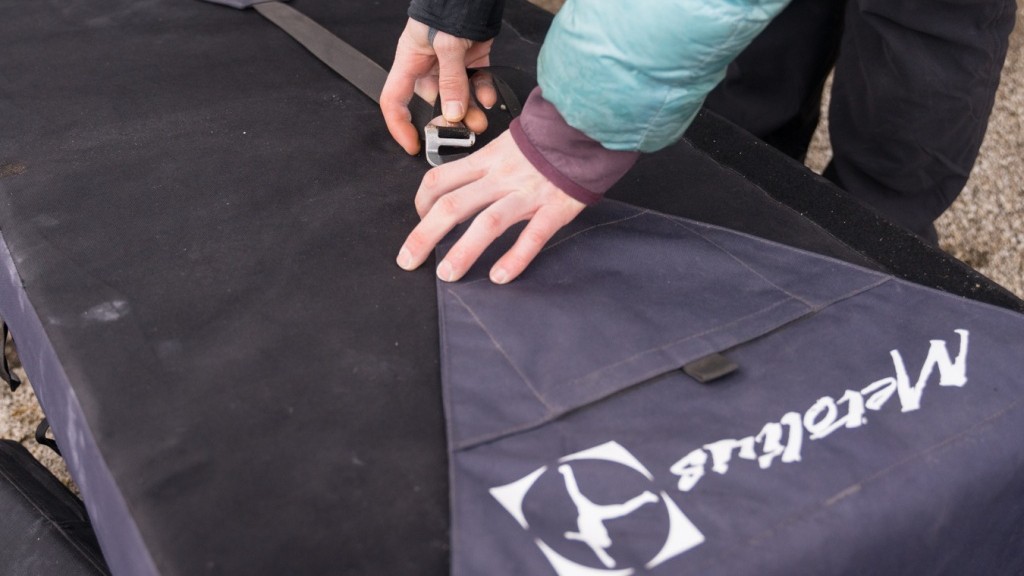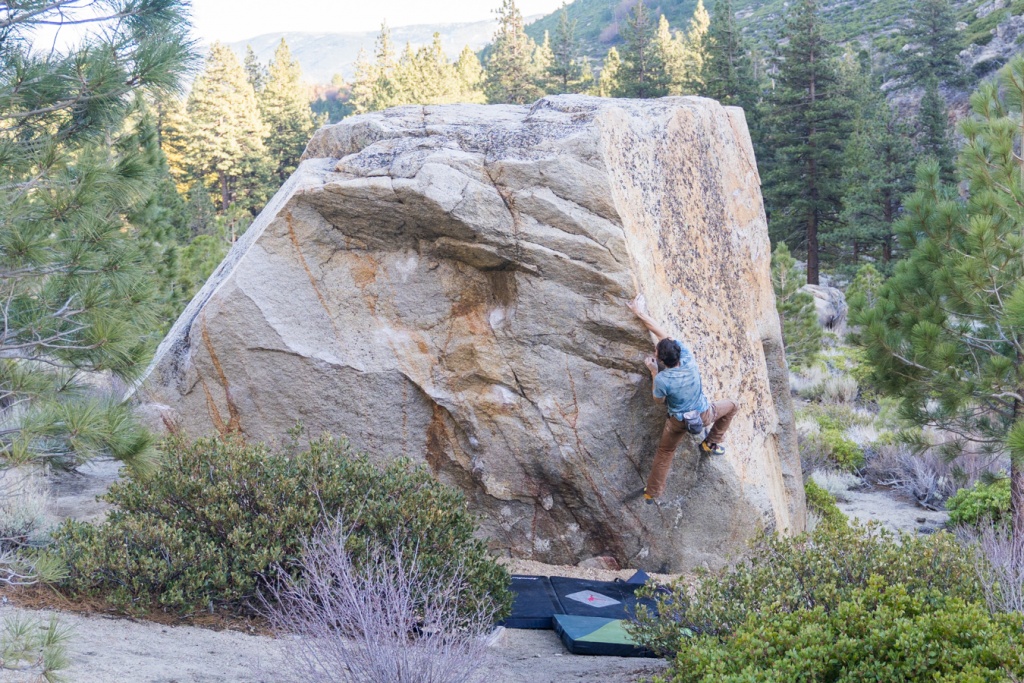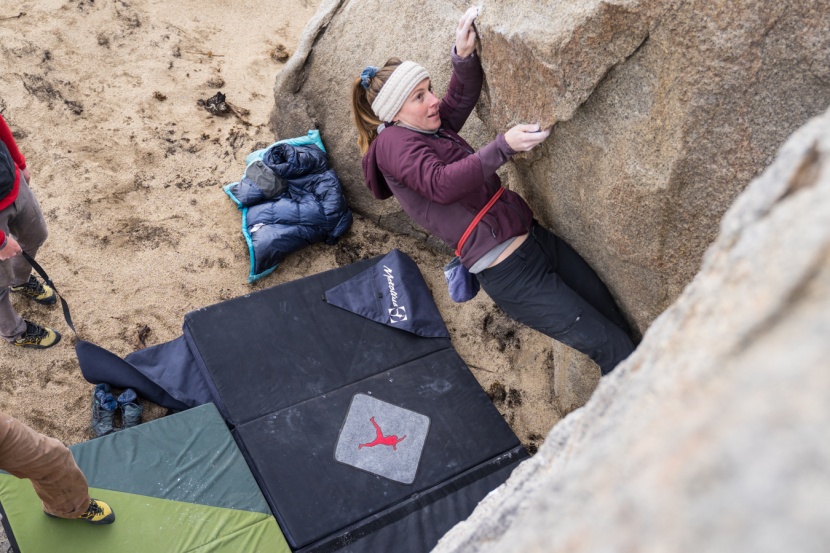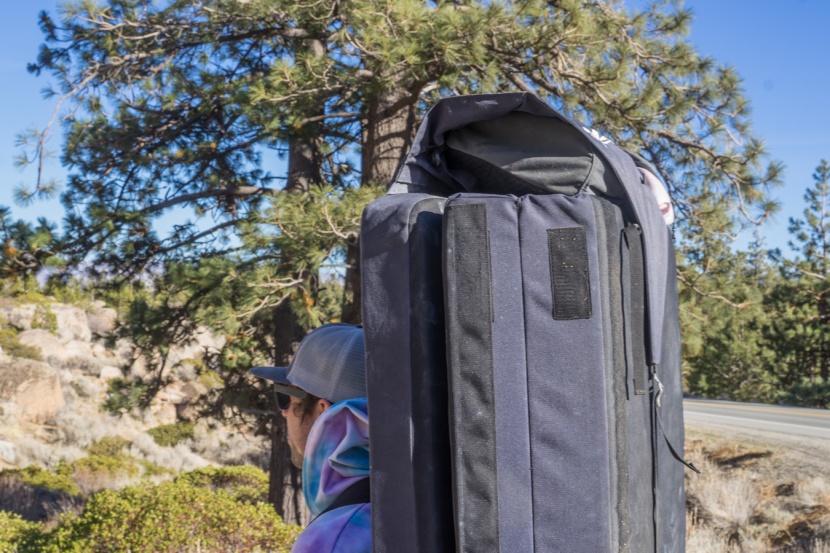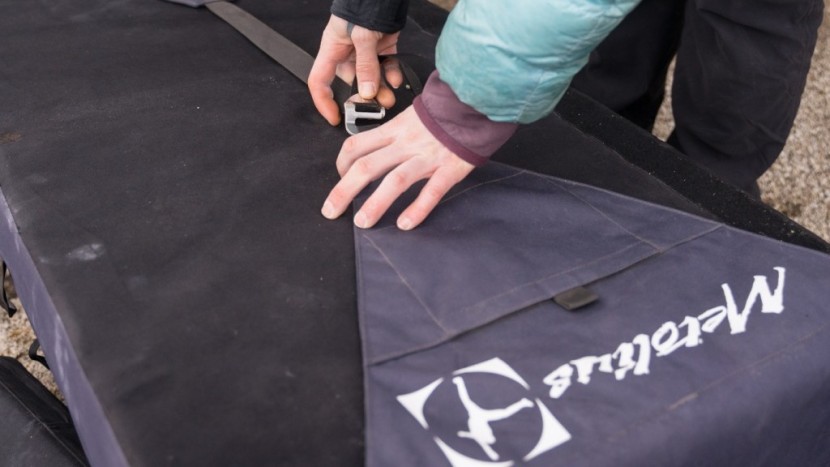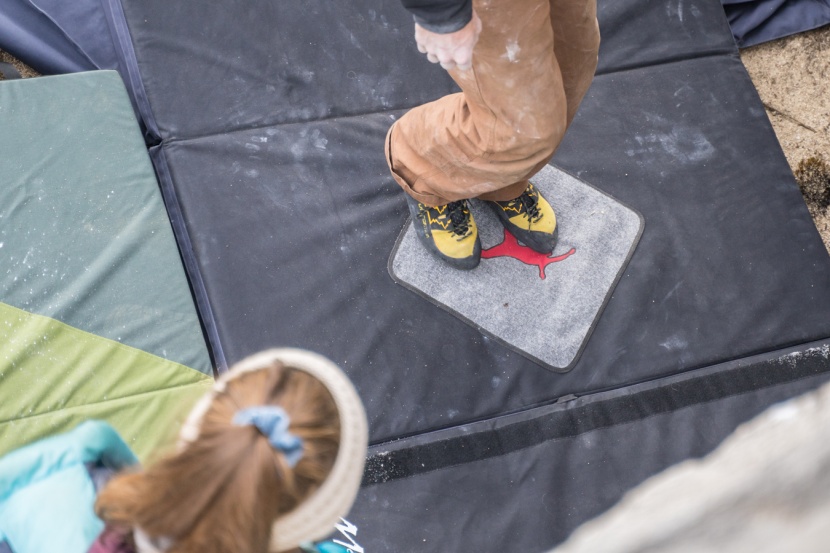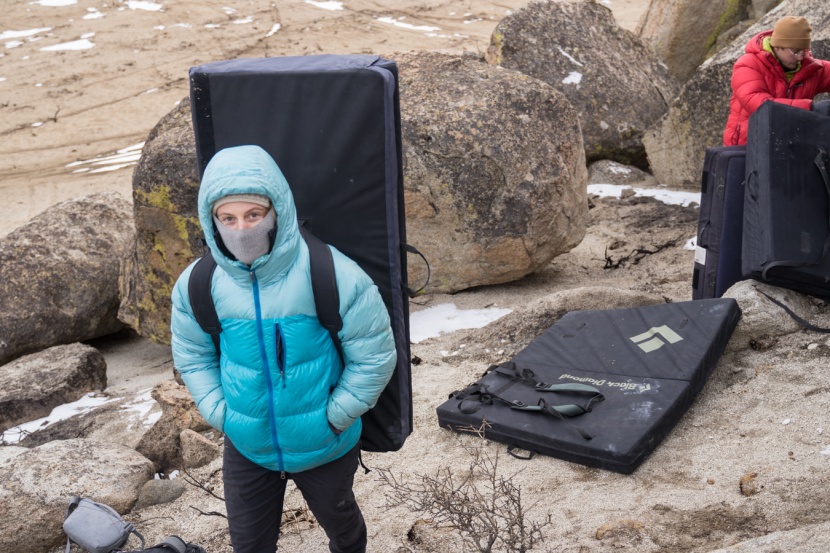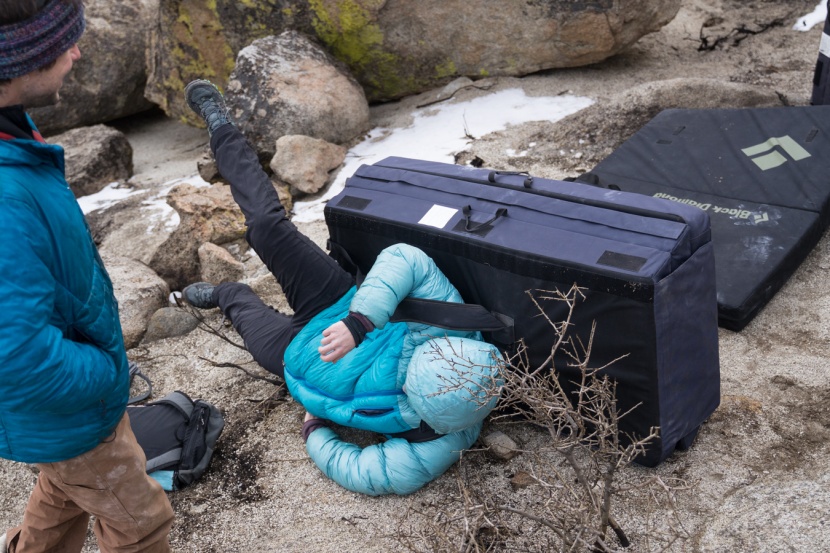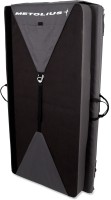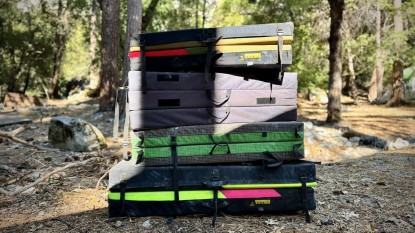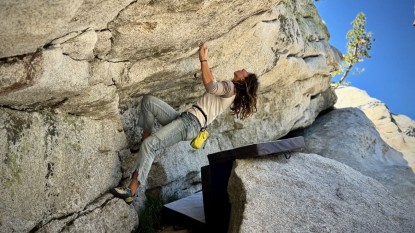
Our Verdict
Our Analysis and Test Results
The Magnum is a tri-fold crash pad with 4 inches of foam padding. It folds on an angled-hinge design. Being 70" x 47", it's one of the largest pads on the market, yet still only weighs a respectable and portable 18.7 lbs. We think its size and overall performance make this pad an incredible investment for climbers across a wide range of experience.
Padding Falls
The Magnum is 4" thick, while most “high ball” pads are 5". If bouldering way up off the ground is your jam, you may want to choose a thicker pad, but for many climbers, there is plenty of glory to be had a mere body length up. Additionally, if you're climbing highballs, you need spotters, and they can bring more pads anyway to stack.
For the weight you'll carry and the sheer amount of coverage provided, the Magnum is awesome. It measures 70" x 47", bigger than its top competitors. Metolius uses an angled hinge design that allows for more cushioning than a straight-hinged pad, so the pad won't fold in on itself, even if you land hard on one of the hinge points. There is also a velcro strip where the hinge comes together to keep the pad flat and rigid, a nice touch.
The tri-fold design is excellent for padding smaller boulders you might land on or uneven terrain, as the Magnum has more points to fold and conform than most pads when placed upside down. Since the pad is 70" long, it's great for traverses and cave problems or the occasional afternoon nap.
Durability
The Magnum is covered with a burly 900-denier nylon fabric that is ready to be dragged over gravel, sand, and rock. It even has flaps to protect the soft side of the velcro when the pad is folded. Metolius is known for durability in their haul bags and portaledges, and they've taken the durability required for big wall gear and applied it to their crash pads. The shoulder straps and hip belt are reinforced, sewn on at multiple points so they don't pull and stretch the shell fabric.
Metolius takes a 3-layer approach for the foam in this pad, with 1" closed-cell top layer, 2.5" of open-cell foam in the middle, and another ½" of closed-cell on the bottom. The result is a pad that maintains its rigidity over time. Our lead tester used a Metolius pad for six seasons (sleeping on it often) before deciding it had become too soft. At no point did the buckles fail, and the shoulder straps never separated from the pad.
Packing Gear
Though you can't cram this pad full of gear like a taco-style pad, the Magnum can still carry a fair amount of extra amenities. It has a huge pocket on its closure flap that can easily accommodate a pair of shoes and a chalk bag, plus a small pocket for brushes, skin files, and nail clippers. The closure strap is long enough that you can secure a small backpack with food and water underneath the closure flap on the top of the pad. Despite its trifold design, we feel an individual can still carry a long day's worth of bouldering supplies (food, water, guidebook) without carrying a pack in the front.
The only downside to the tri-fold is that you can't quickly throw all of your items in the pad, fold in half, and cart your wares off to a nearby boulder suitcase-style. This could be a dealbreaker for some and will take a bit of adjustment for those used to pad that folds in half. However, careful management of your junk show (you should be doing this anyway) ensures your gear isn't spread around the crag, and you'll be able to throw a few loose items in a pack and move along quickly.
Features
This pad has loads of functional, well-designed features. The folded pad is held closed with one tough aluminum buckle (with some finesse, this doubles as a bottle opener). The buckle is secure but is easy to detach when you want to. The flap that holds all three sections of the pad together must be minded when the pad is open, as it could be a tripping hazard as your friends drag the pad around to protect you from an ankle-breaking fall, but it also serves as another point to grab the pad. The Magnum has a handle on both ends and a handle at both hinge points. While you can't throw your gear on the pad and move it all like a suitcase, you can easily carry the pad from either side when you want to move it short distances without having to secure the top flap.
In the middle of the pad is a carpet square for wiping the dirt off your shoes before you commit to technical, foot-intensive boulder problems. This feature is especially useful if you're climbing after rain or snow.
The suspension system is comfortable and durable, and the shoulder straps can easily be removed and replaced. Our only gripe is that the hip belt isn't padded, which would be more comfortable than just webbing. Despite a lack of padding, the hip belt does a nice job stabilizing the load. Metolius points out that this pad makes a great bed for camping, and while we can confirm this, we don't recommend sleeping on it too often as your slumbering mass will compress the foam and reduce its usable life span.
Should You Buy the Metolius Magnum?
Metolius is a small American climbing company from Oregon, and they've been churning out high-quality, innovative climbing products for decades. Their Metolious Magnum offers a very attractive alternative to the traditional bi-folding pad. And climbers take note — this pad isn't new. The Magnum has been a staple at the boulders for years with good reason. Our testers agree it's easier to pull harder and commit to the top out when there is a Magnum between them and the ground. Someone in your crew needs to have a big pad for taller boulders, and if it's you, the Magnum will serve you well for a long time, without being a huge pain to lug up the hill.
What Other Crash Pads Should You Consider?
The Metolius Magnum is well built and is one of our favorites, but it's not cheap. While it is our favorite large pad, there are others at a more reasonable price point. The Organic Full Pad is our top choice for a well-rounded medium-sized pad. But if you need a bit more high-fall protection in a pad that is chocked full of features, check out the Mad Rock Duo.
| Awards | Best Large Crash Pad |
|---|---|
| Price | $400 List Check Price at REI |
Overall Score  |
|
| Star Rating | |
| Bottom Line | This tester favorite provides loads of coverage without feeling too cumbersome while hiking |
| Pros | Huge surface area, narrow carrying profile, excellent features |
| Cons | Can't pack as much as a taco-style pad |
| Rating Categories | Metolius Magnum |
| High Falls (30%) | |
| Low Falls (30%) | |
| Durability (20%) | |
| Packing Gear (10%) | |
| Features (10%) | |
| Specifications | Metolius Magnum |
| Surface Size (inches) | 70" x 47" |
| Thickness (inches) | 4" |
| Weight (lbs) | 18.7 lbs |
| Hinge/Taco | Hinge |
| Closing Flap | Yes |
| Warranty | 1 Year |


